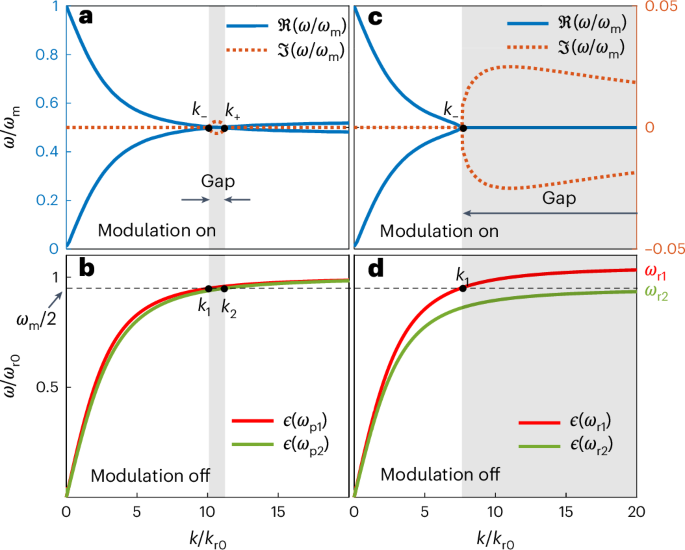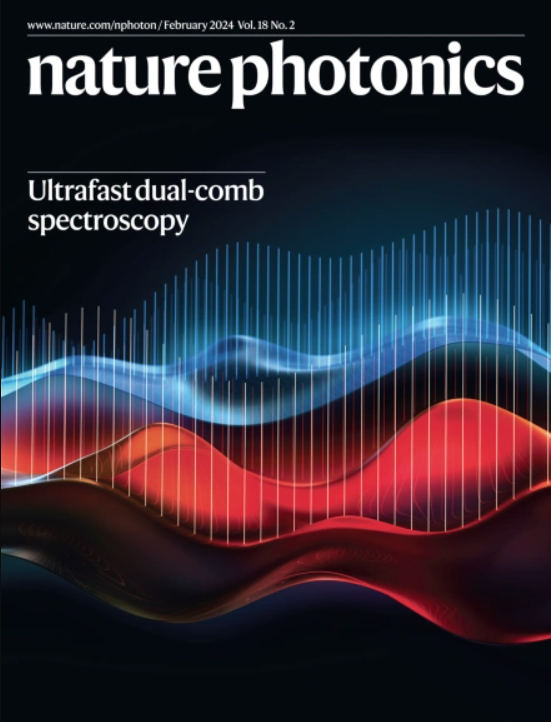Expanding momentum bandgaps in photonic time crystals through resonances
IF 32.3
1区 物理与天体物理
Q1 OPTICS
引用次数: 0
Abstract
The realization of photonic time crystals is a major opportunity but also comes with considerable challenges. The most pressing one, potentially, is the requirement for a substantial modulation strength in the material properties to create a noticeable momentum bandgap. Reaching that noticeable bandgap in optics is highly demanding with current, and possibly also future materials platforms because their modulation strength is small by tendency. Here we demonstrate that by introducing temporal variations in a resonant material, the momentum bandgap can be drastically expanded with modulation strengths in reach with known low-loss materials and realistic laser pump powers. The resonance can emerge from an intrinsic material resonance or a suitably spatially structured material supporting a structural resonance. Our concept is validated for resonant bulk media and optical metasurfaces and paves the way towards the first experimental realizations of photonic time crystals. Optical realization of photonic time crystals can be achieved by using temporal variations in a resonant material to expand the momentum bandgap, even at low modulation strengths, with known low-loss materials and realistic laser pump powers.


通过共振扩大光子时间晶体的动量带隙
实现光子时间晶体是一个重大机遇,但同时也面临着相当大的挑战。最紧迫的挑战可能是要求材料特性具有相当大的调制强度,以产生明显的动量带隙。要在光学领域达到这种明显的带隙,对目前的材料平台,甚至未来的材料平台都有很高的要求,因为它们的调制强度往往很小。在这里,我们证明了通过在共振材料中引入时间变化,可以极大地扩展动量带隙,其调制强度与已知的低损耗材料和实际激光泵浦功率相当。共振可以来自材料本身的共振,也可以来自支持结构共振的适当空间结构材料。我们的概念得到了共振块体介质和光学元表面的验证,并为光子时间晶体的首次实验实现铺平了道路。
本文章由计算机程序翻译,如有差异,请以英文原文为准。
求助全文
约1分钟内获得全文
求助全文
来源期刊

Nature Photonics
物理-光学
CiteScore
54.20
自引率
1.70%
发文量
158
审稿时长
12 months
期刊介绍:
Nature Photonics is a monthly journal dedicated to the scientific study and application of light, known as Photonics. It publishes top-quality, peer-reviewed research across all areas of light generation, manipulation, and detection.
The journal encompasses research into the fundamental properties of light and its interactions with matter, as well as the latest developments in optoelectronic devices and emerging photonics applications. Topics covered include lasers, LEDs, imaging, detectors, optoelectronic devices, quantum optics, biophotonics, optical data storage, spectroscopy, fiber optics, solar energy, displays, terahertz technology, nonlinear optics, plasmonics, nanophotonics, and X-rays.
In addition to research papers and review articles summarizing scientific findings in optoelectronics, Nature Photonics also features News and Views pieces and research highlights. It uniquely includes articles on the business aspects of the industry, such as technology commercialization and market analysis, offering a comprehensive perspective on the field.
 求助内容:
求助内容: 应助结果提醒方式:
应助结果提醒方式:


